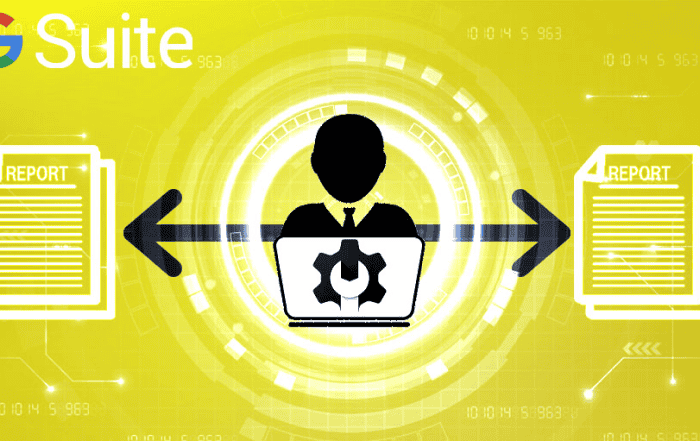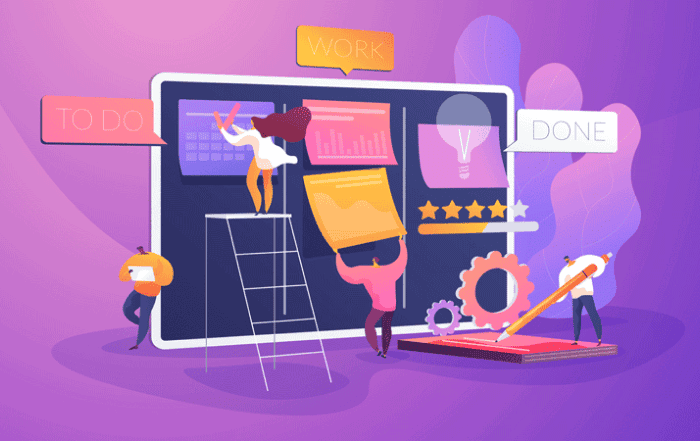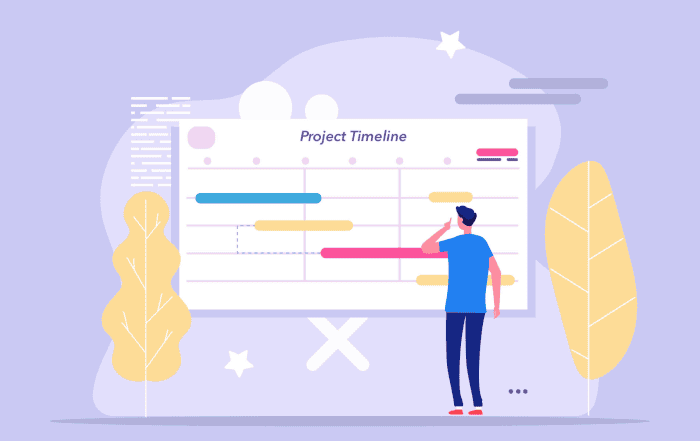
In today’s fast-paced business landscape, efficient communication and collaboration are crucial for success. This is where Google Workspace (formerly known as G Suite) comes into play. Google Workspace is a comprehensive suite of productivity and collaboration tools that empower individuals and teams to work together seamlessly. One essential aspect of this suite is its reporting capabilities, which offer insights into user activity, resource utilization, and overall efficiency. In this blog post, we will delve into the world of reporting in Google Workspace, exploring its significance, key features, and how it can optimize collaboration within your organization.
The Significance of Reporting
Effective decision-making relies on accurate data. Reporting in Google Workspace provides valuable information that enables organizations to gain insights into user behavior, assess resource allocation, and make informed decisions. By tracking user activity, identifying bottlenecks, and analyzing usage patterns, reporting empowers businesses to optimize their workflows, enhance productivity, and identify potential security risks.
Key Reporting Features in Google Workspace
Google Admin Console: The Admin Console is the control center for managing Google Workspace services. It offers a range of reporting tools that provide insights into user activity, security, and device management. The Reports section within the Admin Console offers reports on various aspects, such as user logins, email usage, and file sharing.
Google Workspace Reports API: For advanced users or developers, the Google Workspace Reports API allows access to and customization of reports programmatically. This API can be used to integrate reporting data into other systems or build custom dashboards tailored to an organization’s needs.
Google Drive Activity Dashboard: This dashboard provides insights into how files are being used within Google Drive. It displays information about file views, edits, and shares, helping teams understand collaboration patterns and user engagement.
Gmail Logs: Gmail reports offer visibility into email usage, such as incoming and outgoing messages, attachment types, and message volume. This can be especially useful for monitoring email security and identifying potential threats.
Google Meet Reports: With the rise of remote work and virtual meetings, Google Meet reports offer insights into meeting attendance, call duration, and participation trends. This data can guide organizations in optimizing their virtual communication strategies.
Usage Reports: Usage reports provide information about app usage across the Google Workspace suite. This includes insights into which apps are most commonly used, helping organizations allocate resources effectively and identify areas for training.
Optimizing Collaboration with Google Workspace Reporting
Identifying Collaboration Patterns: Reporting in Google Workspace allows organizations to understand how teams collaborate. By analyzing shared documents, email threads, and meeting attendance, managers can identify successful collaboration models and replicate them across the organization.
Resource Allocation: Reports on app usage and user activity help organizations allocate resources efficiently. For instance, if a certain app is underutilized, organizations can provide training to encourage its use or reallocate resources to more essential tools.
Security Monitoring: Monitoring Gmail logs and user activity reports can help detect unusual behavior, such as suspicious login attempts or large-scale data exports. By identifying potential security breaches early, organizations can take action to prevent data leaks or cyberattacks.
Performance Optimization: Google Workspace reports reveal performance metrics, such as the time taken to complete tasks or response times in virtual meetings. This data can be used to optimize workflows and improve overall efficiency.
Training and Skill Enhancement: Reports on app usage can uncover areas where additional training might be needed. This ensures that employees are well-versed in using the tools at their disposal, maximizing productivity and reducing the learning curve.
Compliance and Auditing: Reporting tools play a vital role in meeting compliance requirements. Organizations can track user activity and data sharing to ensure adherence to industry regulations and internal policies.
Conclusion
In the ever-evolving landscape of modern business, effective collaboration is paramount. Google Workspace offers a comprehensive suite of tools designed to foster seamless teamwork, and its reporting capabilities add a layer of insight that is indispensable for organizations striving to optimize their collaboration strategies. By leveraging Google Workspace reporting features, businesses can gain a holistic view of user behavior, resource allocation, and security concerns. Armed with this knowledge, organizations can make informed decisions, enhance productivity, and foster a culture of efficient collaboration. In a world where data-driven decisions reign supreme, reporting in Google Workspace is a game-changer that propels businesses toward success in the digital age. However, harnessing the full potential of Google Workspace involves not only utilizing its features but also optimizing them with the aid of expert guidance. In this blog post, we will explore how Codelattice, a leading Google Workspace partner in India, enhances the Google Workspace experience with its unmatched expertise and support, while also delving into the significance of reporting within Google Workspace.
Codelattice is a prominent Google Workspace partner based in Calicut, Kerala, India, and recognized as the most reliable partner in Mumbai. With a remarkable track record and a reputation for excellence, Codelattice is renowned for its exceptional support, expertise, and commitment to ensuring organizations make the most out of Google Workspace.
As an authorized Google Workspace Partner in Bangalore, Codelattice brings unparalleled expertise to the table. Their team of skilled professionals understands the intricate nuances of Google Workspace, enabling them to provide personalized solutions tailored to each organization’s unique needs.
To set up, migrate, and experience the best support on Google Workspace, reach out to Codelattice at gws@codelattice.com or call +91 9620615727. Join the ranks of over 15,000 satisfied users who have unlocked the power of Google Workspace with Codelattice by your side.




